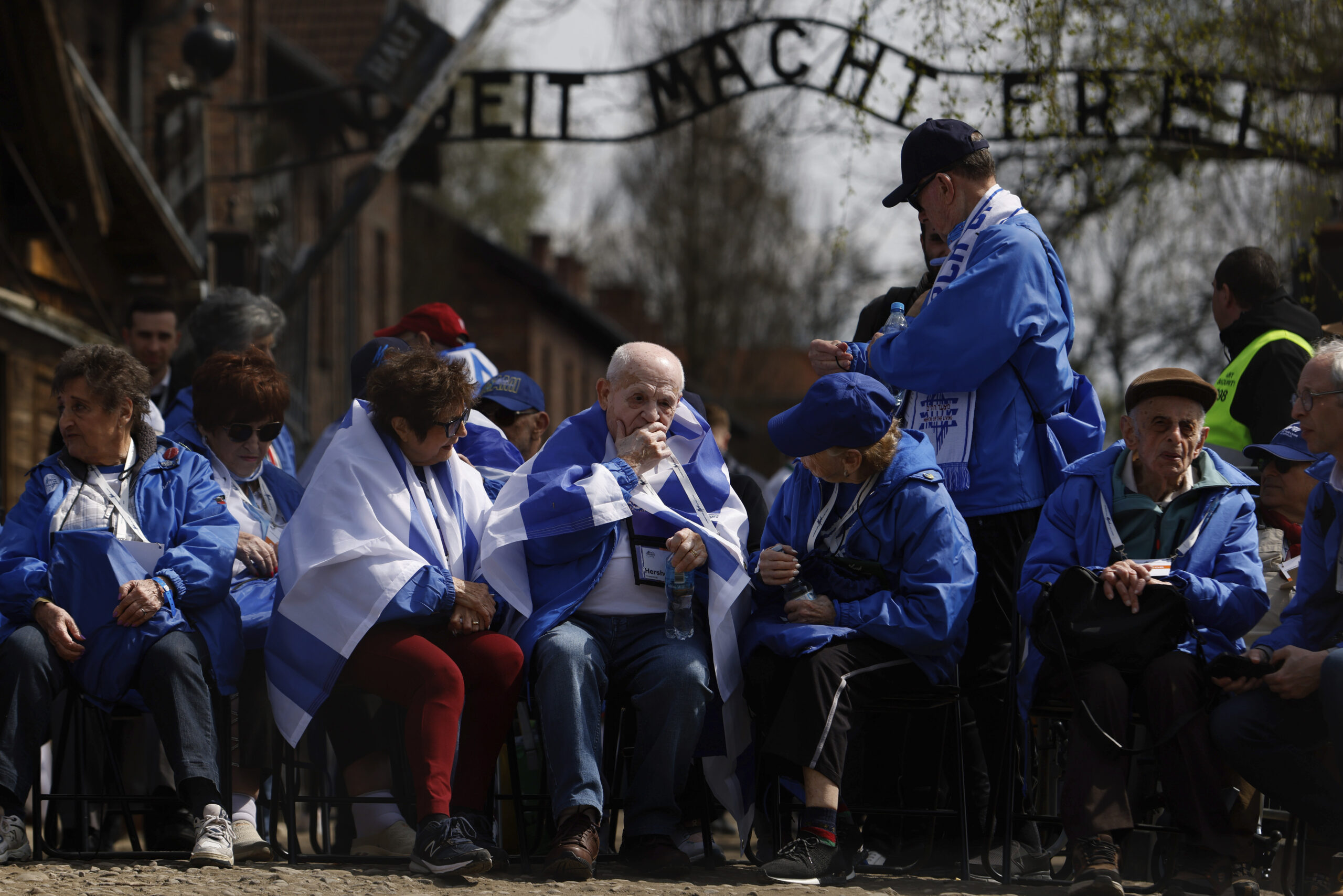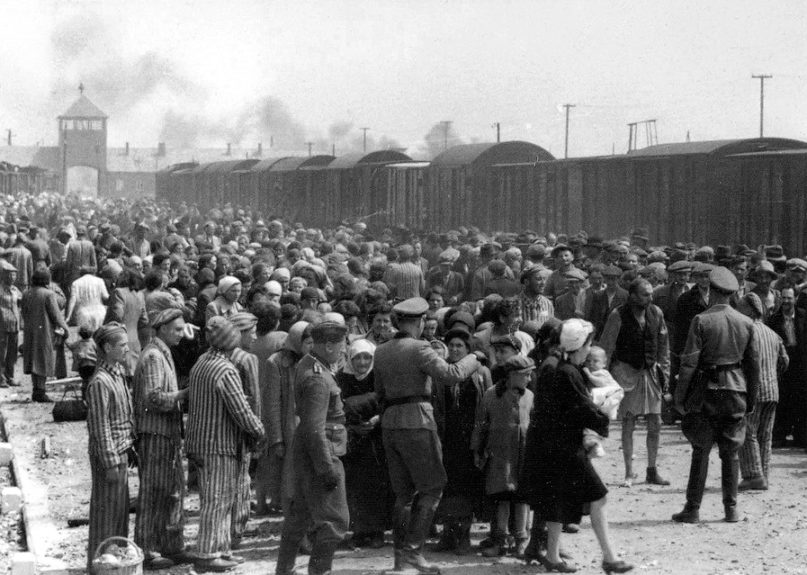NEW YORK (RNS) — Since the horrific attack by Hamas against Israeli civilians on Oct. 7, it’s been pointed out numerous times that the massacre constituted the single most deadly day for Jews since the Holocaust. As important as the number alone is the targets: The more than 1,200 slaughtered, most of whom were tortured and terrorized first, Hamas’ victims, like those of ISIS and the Nazis, were ordinary people killed simply for who they were.
Brutality is shocking and incomprehensible on its own. The comparisons between 10/7 and the Shoah are meant to recall that violence against Jews is a dark and dangerous current in human history. But recalling the Holocaust only has value if listeners have a baseline literacy about what the Holocaust actually was.
The sad fact is that, even discounting the pathology of Holocaust denial, there is woeful ignorance about the Nazi campaign to exterminate world Jewry in the 1930s and ’40s. According to a 2020 survey by the Claims Conference, almost two-thirds (63%) of Americans ages 18-39 do not know that 6 million Jews were killed during the Holocaust. Almost half (48%) could not name one concentration camp or ghetto.
Even many people with some knowledge of the Holocaust have no idea that centuries of persecution, evictions, pogroms and murderous campaigns against Jews preceded the Nazis’ so-called Final Solution.
RELATED: Teaching teachers about the Holocaust and its lessons for democracy today
Delivering meaningful Holocaust education presents challenges. For starters, not only do many countries provide zero curriculum, at the present time fewer than half of U.S. states mandate teaching about the Shoah. In the past, many programs relied on the powerful experience of actual survivors coming into classrooms and speaking with students. As fewer and fewer witnesses remain alive, this firsthand experience will no longer be available.
But details matter. We cannot shorthand the Shoah.

Holocaust survivors and former Auschwitz inmates participate in the annual March of the Living, a trek between two former Nazi-run death camps, in Oswiecim, Poland, April 18, 2023, to mourn victims of the Holocaust and celebrate the existence of the Jewish state. The infamous slogan in the background reads: “Work Sets You Free.” (AP Photo/Michal Dyjuk)
At 95 years of age, my own mother remains a powerful storyteller but no longer has the strength to speak publicly. By the late 1930s her parents felt desperate to leave Poland but could not get visas to any safe haven. At 14, my mother survived murder by jumping off a truck that was part of a convey headed for Treblinka, a death camp. Evading bullets, she ran into the forest and eventually made her way to Warsaw, where she worked as a maid under false papers.
She and my father, who also survived living incognito, separately made their way to the United States after the liberation and raised my siblings and me on a chicken farm in the Catskills. My parents’ stories, together with those of the few relatives who made it through the Shoah alive, served as foundational building blocks of my identity as a Jew and mobilized my career path as a psychiatrist and teacher of pastoral counseling.
Refracted through the distance of another generation, I see the impact of their experiences and narratives on my own children, who care deeply about Jewish life and the suffering of other persecuted communities. And yet I know that legacy will fade over time.
Despite its importance, Holocaust education faces a significant stumbling block. While the Holocaust itself raised the world’s consciousness of human rights, it’s a question today how much to maintain the particularism of the Holocaust among other human rights agendas. Many visitors to the Anne Frank House in Amsterdam feel that it has been denuded of much of its Jewish narrative in favor of a blander, feel-good universalism.
But solid Holocaust education strengthens commitment to Jewish peoplehood and to humanity overall. Well-designed curriculums and effective teaching by trained teachers build awareness of key terms, probe historical events and avoid simple answers to complex questions. Probing the deep roots of antisemitism helps students confront the Holocaust and also discuss warning signs of hate and racism.
RELATED: What Oct. 7 has taught American Jews
We are the people of Zachor — the Hebrew word for memory. Knowledge of the Holocaust is critical to understanding what is taking place now, in Israel, in America and around the world. It is important for the world at large and it is important for the Jewish community.
Finally, Holocaust literacy helps identify our allies, because we do have allies. Many have noted that one positive outcome of this dark time is the coming together of the Jewish community in solidarity. We are bound by so much, including our past. There is not a Jew alive today who is not impacted by the Holocaust. There is not a Jew alive today who is not impacted by the 10/7 attack on Israel, by the knowledge of innocent Jews slaughtered and taken hostage.
Knowledge is power. Now is the time to ensure that the history of 10/7 is contextualized within the history of the Holocaust in our schools. We are the people of the book. Let us study from the same volume so we can co-write a better next chapter.
(Michelle Friedman is a psychiatrist who teaches pastoral counseling at Yeshiva Chovevei Torah in New York. The views expressed in this commentary do not necessarily reflect those of Religion News Service.)





